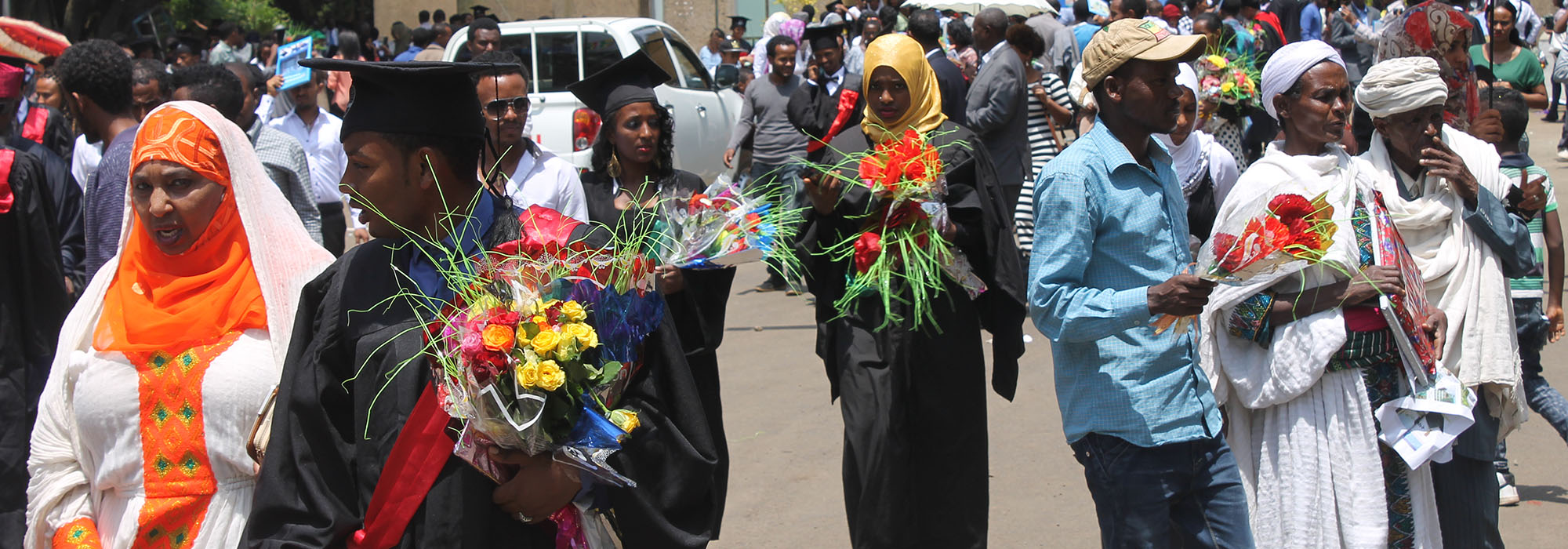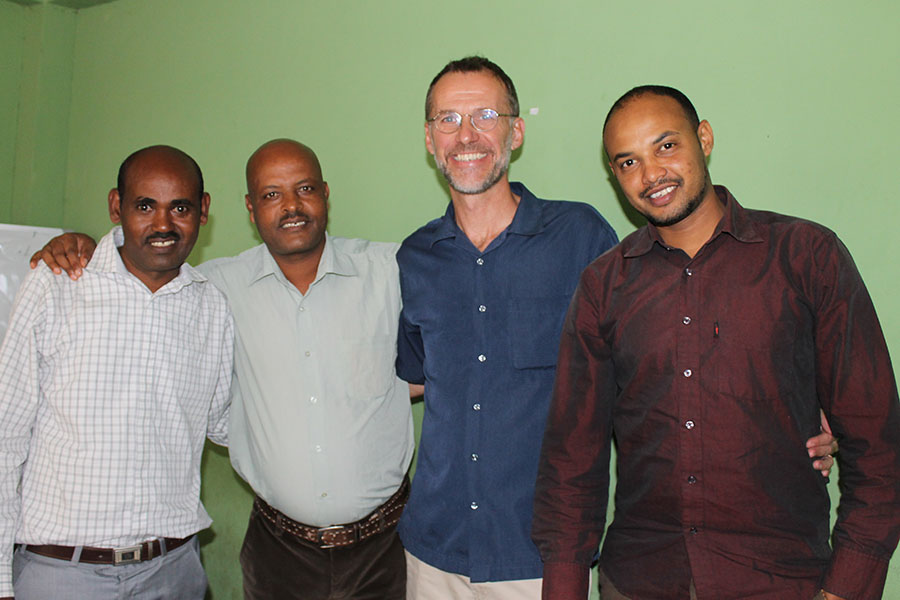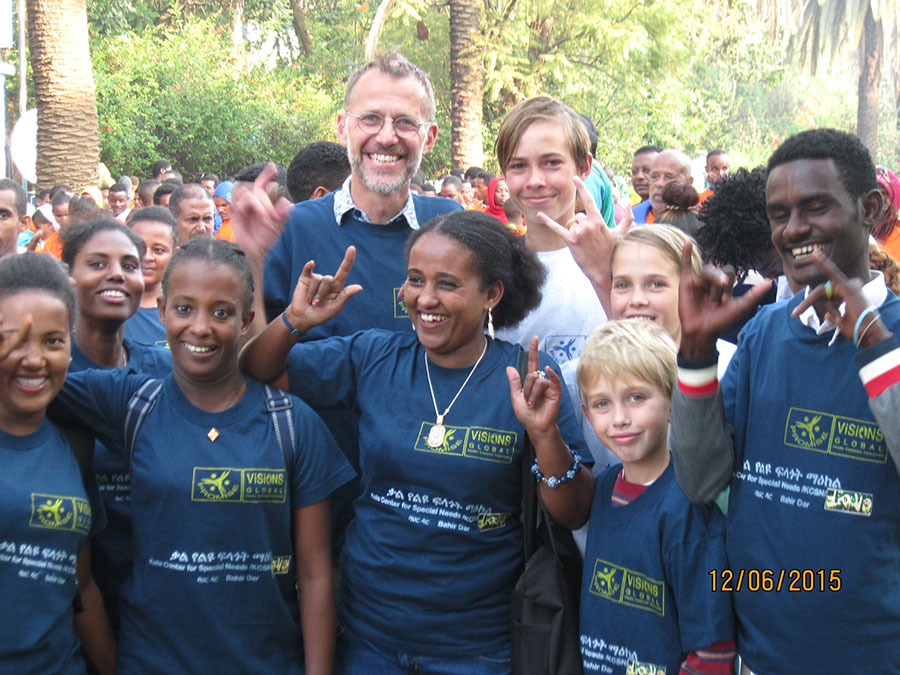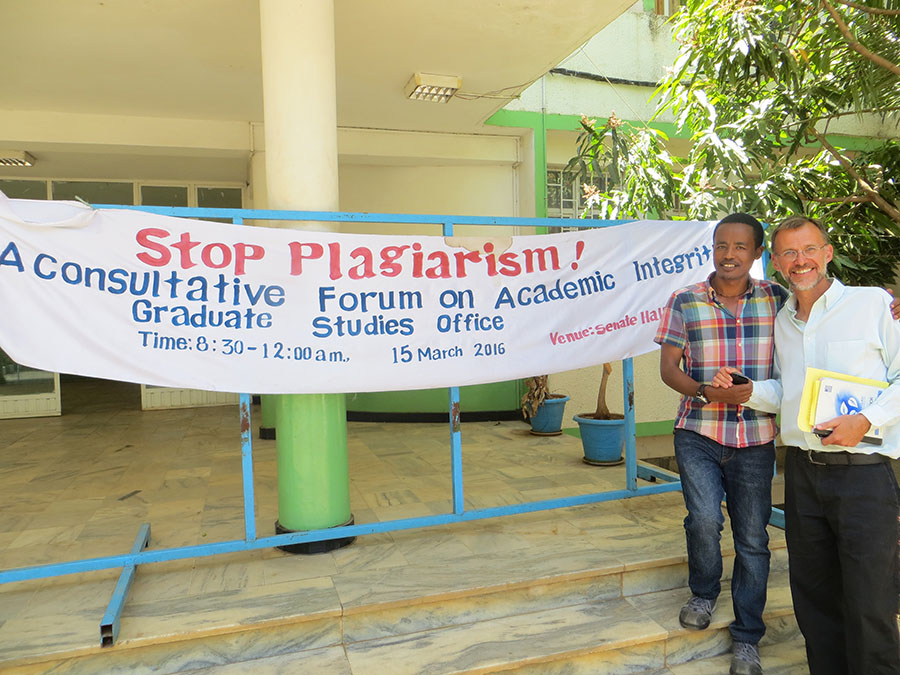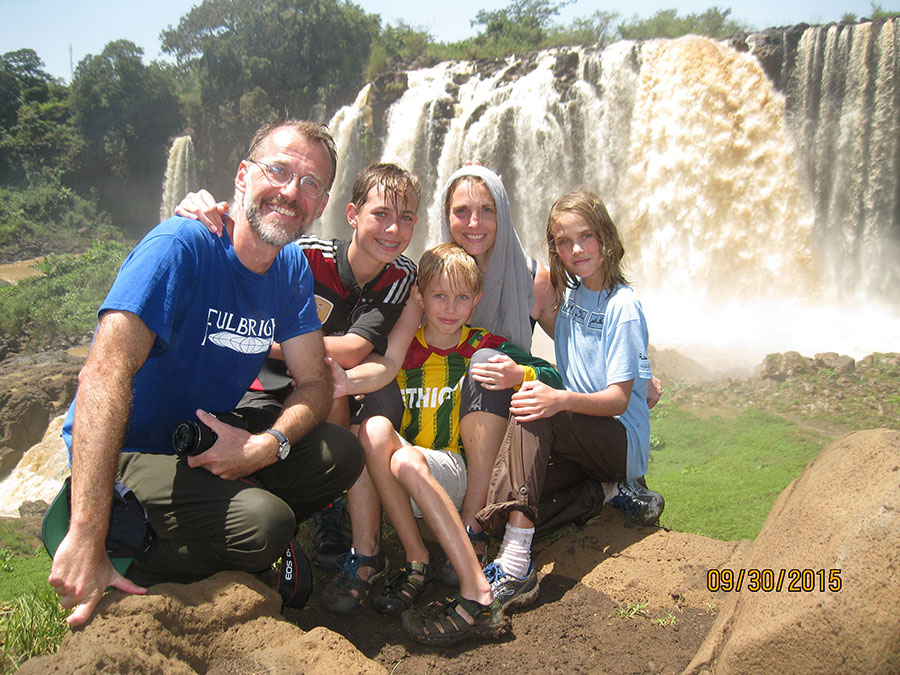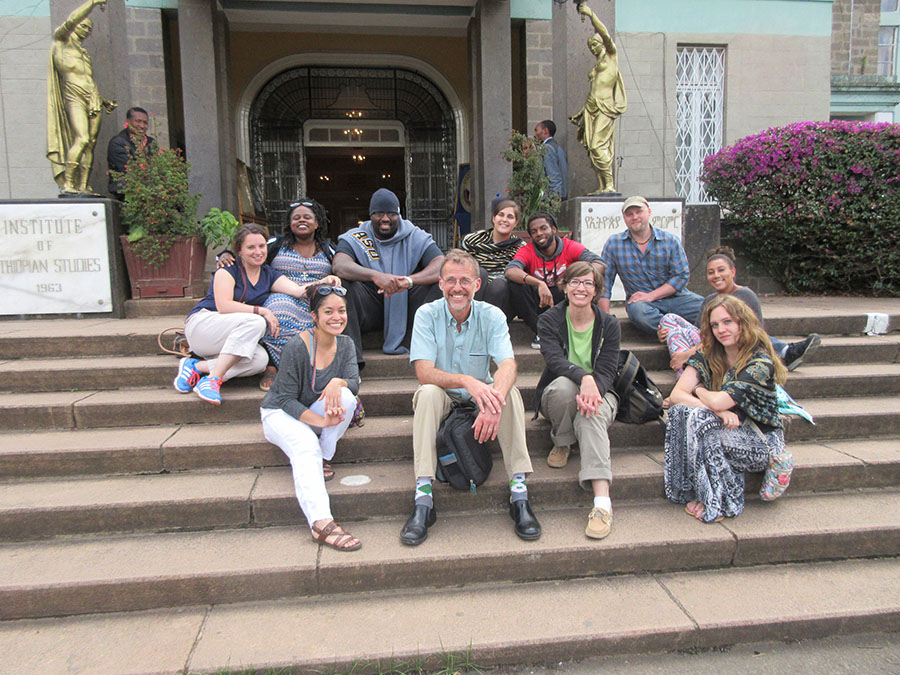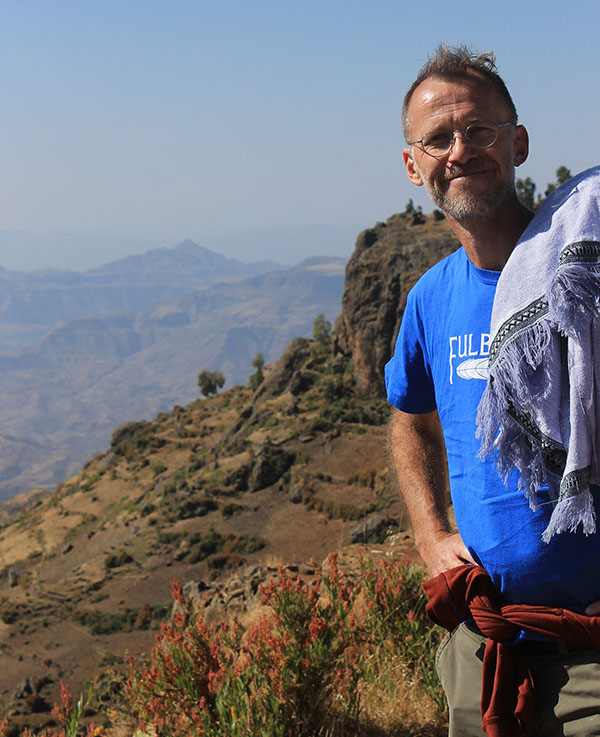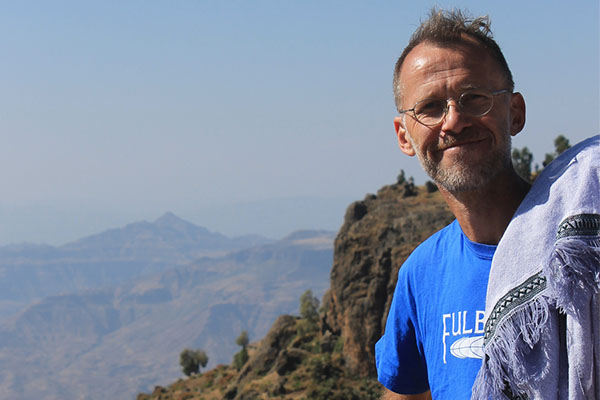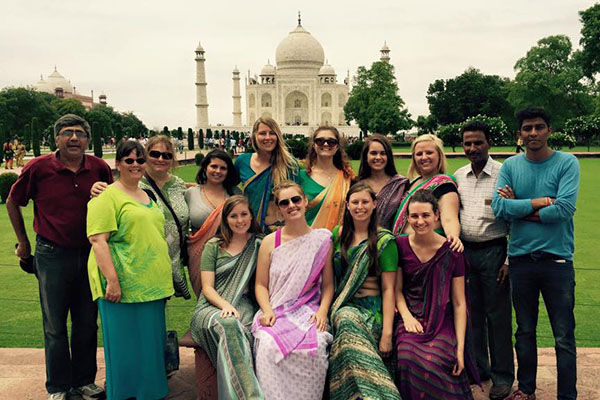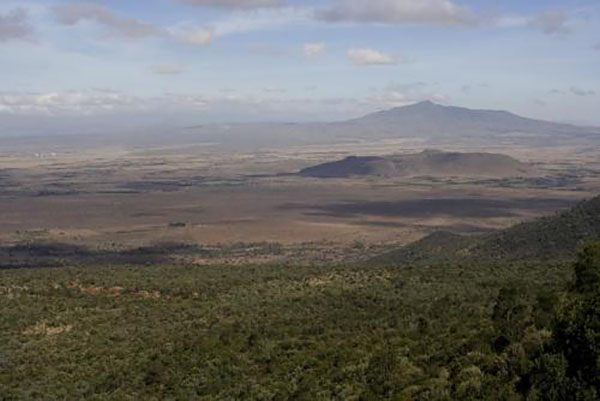Editor’s note: The author spent 2 ½ weeks at Bahir Dar University on an Appalachian study abroad with Dr. Vachel Miller and 10 others from the Reich College of Education (RCOE) in summer 2015. She is a student in RCOE’s doctoral program in educational leadership.
The news reports in August of this year of violence in northern Ethiopia amid political protests became personal for Appalachian State University’s Dr. Vachel Miller who spent the past year teaching as a Fulbright Scholar at Bahir Dar University (BDU), located in Ethiopia’s Amhara region.
“This is a moment where violence ‘far away’ feels very close to home,” the leadership and educational studies professor wrote me in an email about a week after he returned from Africa.
“The violence happened just 14 days after I left. This is very disturbing.”
Amnesty International said at least 30 people were killed in one day during political protests in the city of Bahir Dar where BDU is located, and that the death toll across the Oromia and Amhara regions likely totaled 100 as a result of similar uprisings over the Aug. 6-7 weekend. Human Rights Watch said at least 500 people have been killed by Ethiopian security forces since November 2015. More violence was reported around the capital city of Addis Ababa in early September.
World news takes on new meaning
Miller and I had enjoyed a cup of buna (Amharic for “coffee”) soon after his return from Africa, before the violence erupted. Our reunion in early August was a happy catching up on the Ethiopian friends we made during my RCOE study abroad in summer 2015. Miller also spoke about his yearlong Fulbright Scholar experience and what it meant to him and his family.
Now, recalling the hospitable, quiet-spoken Ethiopians we met during our 2015 study abroad, I felt saddened to learn of these events. World news takes on new meaning when you have studied or lived abroad. To most people here, though, the news may have little impact.
In our talk over coffee, I asked Miller how he planned to parlay his Fulbright Scholar experiences into learning tools for Appalachian students. It seemed like a basic question. He paused, and after nearly an hour of backstory about the Ethiopian educational system, I realized how over simplified my question had been – a bit naïve for someone who’d been there, and apparently had readjusted to my American perspective of higher education. This was a man still going through the culture shock of returning home – hectic schedules, air conditioning, fast internet and a faster-paced world lacking the deep human connection found in Ethiopia where sidewalks are crowded with people and livestock.
Miller said translating his experiences as a Fulbright Scholar to the Appalachian classroom may be difficult – how does one begin to explain the contextual nuances required for others to make sense of education in Ethiopia? And besides, he wondered aloud, does it matter here? Ethiopia is not a major player in world economics and has little apparent relevance to North Carolina.
If many Americans don’t care, they at least may be becoming more aware. The Olympics in Rio provided a platform for raising some awareness of ongoing protests against the Ethiopian government, as silver-medal winner Feyisa Lilesa placed his hands above his head in an “X” after the men’s marathon to indicate solidarity with protesters in his homeland. It was a bold gesture, one that he later said could lead to his arrest upon returning home.
For Miller, that gesture now links to the social tensions that have embroiled his host city. That’s part of what an extended period of living abroad does: it shifts a sense of “home” and expands the radius of life’s concerns.
When 11 members of the Appalachian Community, including me, visited Bahir Dar in May 2015 – six counseling graduate students and three doctoral students in education, plus two faculty leaders, Ethiopia was gearing up for a national parliamentary election. A large, pro-government billboard was visible from our hotel, and trucks cruised by frequently with loudspeakers barking political messages. The potential for violence on election-day weekend, our BDU hosts warned, meant we should skip plans to visit historical Gondar a few hours away and stay near our hotel as a precaution.
The election was held on Sunday, May 24, 2015. We had begun heading home by the time final results were tallied and announced: 100 percent of the seats were won by the Ethiopian People’s Revolutionary Democratic Front (EPRDF), which had been in power since 1991. I recall one person’s comment to me when I was there about the upcoming elections and his as-yet indecision of how he would vote, even though Ethiopia had been prospering economically: “Twenty-five years is a long time for one party.”
He was not alone in his thinking. In early 2016, political scientist Leonardo R. Arriola and conflict resolution expert Terrence Lyons published an article in the Journal of Democracy stating that the so-called “100 percent election” meant a “hardening of authoritarian rule in Ethiopia.” EPRDF’s dominance in the elections “effectively announced the start of a new era in which participation in political life will be completely restricted to its own members and allies,” the authors wrote.
What the future holds
Back to Miller and his return home. Upon hearing news of the Aug. 6-7 violence, Miller said he sent emails expressing concern to colleagues at BDU. At first, the messages went unanswered. Then, word from a dear friend a few days later: two BDU staff members and one student were killed in the violence. “I’m still struggling with it, and what it means for the future,” Miller wrote to me again. It may be some time before Miller can take another student group to Ethiopia, depending on whether tensions can be resolved peacefully.
When he left BDU, Miller said the university wanted him to come back and to bring other international faculty, too. Because Ethiopia’s higher education system is rapidly expanding in an effort to modernize the nation’s economy, Miller said BDU and other universities cannot staff their own programs with enough Ph.D.-trained Ethiopian faculty. At BDU alone, Miller said the number of doctoral programs has grown in five years from two to nearly 20. By 2020, he said, the university plans to have 60 Ph.D. programs to help boost the academic credentials and research productivity of university faculty – many of whom have been teaching college students with a bachelor’s or master’s degree. Nationally, only about 15 percent of university faculty hold a Ph.D. degree.
While Ethiopia has made great progress in improving its citizens’ access to education – from the primary through college level, increasing undergraduate enrollment by more than 1,000 percent in the past 15 years – such rapid growth of a higher education system introduces leadership challenges, as we had learned in our study abroad a year ago. At that time, this included quality, availability of resources and an outpacing of graduates in relation to the number of jobs available.
Despite the recent social tensions, Miller said the Ethiopian universities will continue to move forward with their plans to increase access and quality. One of the words he learned in Ethiopia was Izosh, which means, be strong. It’s a word often spoken to runners, or anyone struggling with a challenging task. It’s a word that speaks to a central Ethiopian value: endurance.
What do you think?
Share your feedback on this story.
About Appalachian State University
As a premier public institution, Appalachian State University prepares students to lead purposeful lives. App State is one of 17 campuses in the University of North Carolina System, with a national reputation for innovative teaching and opening access to a high-quality, cost-effective education. The university enrolls more than 21,000 students, has a low student-to-faculty ratio and offers more than 150 undergraduate and 80 graduate majors at its Boone and Hickory campuses and through App State Online. Learn more at https://www.appstate.edu.
